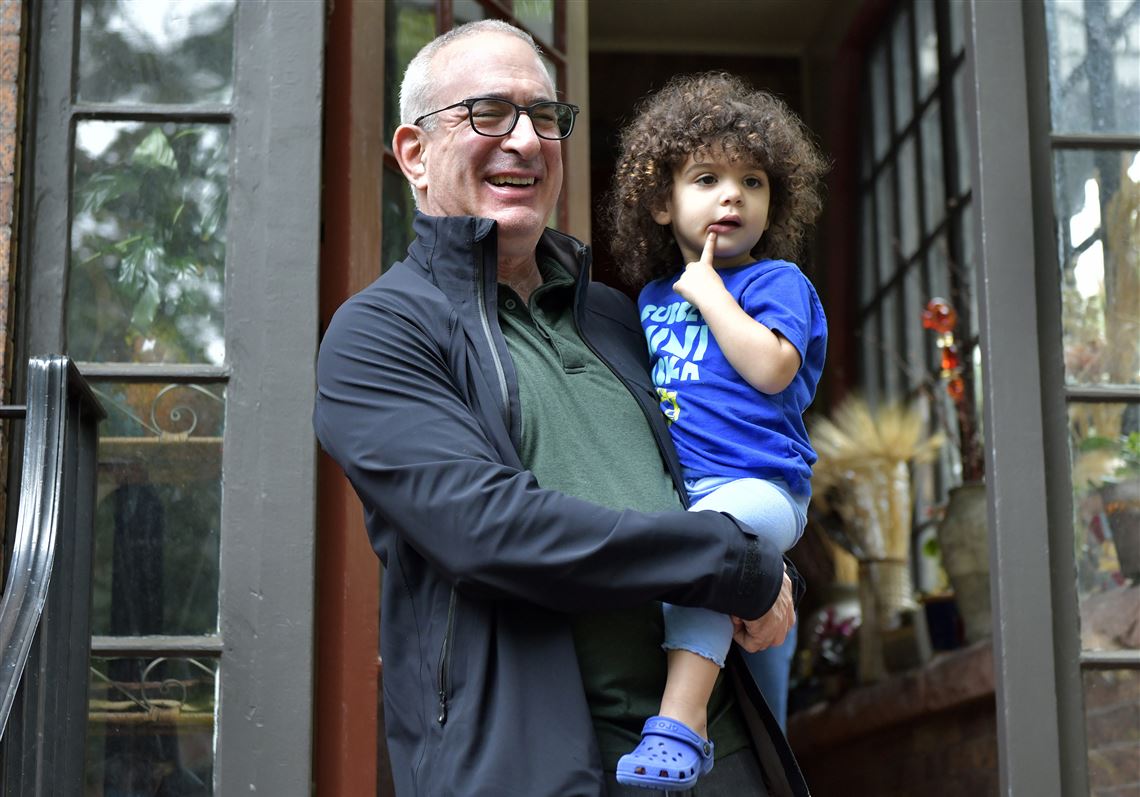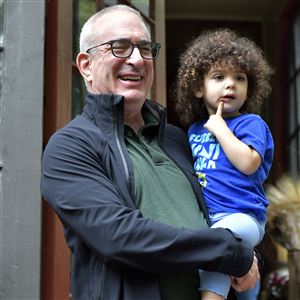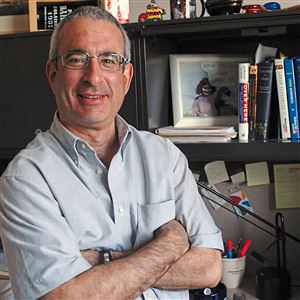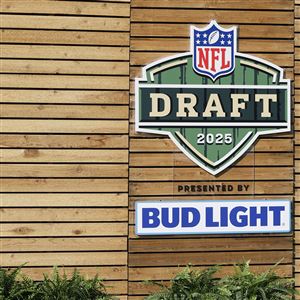Joshua Angrist suspects that his childhood in Shadyside in the 1960s and ’70s wasn’t like those of other people who have won the Nobel Prize.
He rode his bike around the city at all hours, stopping home for dinner before heading out again with his friends. He played bass in a band, then switched to guitar. He frequently skipped Hebrew school. In high school, looking to do the bare minimum, he figured out the requirements for graduating and gamed the system so he could finish a year early.
“I was mostly left to do whatever I want,” said Mr. Angrist, 61, of Brookline, Mass. “I didn’t like school very much. … I loved working, and I just wanted to be a working man and have a salary and have a car.”
Years later — after leaving Pittsburgh, serving time in the Israeli army, earning a doctorate in economics and staying on faculty at the Massachusetts Institute of Technology long enough to receive a rocking chair to commemorate his 25th anniversary — Mr. Angrist won the Nobel Prize in economics.
He shared the award, announced Oct. 11, with David Card of the University of California, Berkeley and Guido Imbens from Stanford University. The three researchers were honored for their work on drawing conclusions from natural experiments, or the types of situations that occur naturally in the world, rather than through researchers’ intervention.
Mr. Angrist’s work has focused on the economics of education and school reform, the effects of immigration and labor market regulation, and econometric methods for program and policy evaluation.
He wrote a book on econometrics — or the use of statistical methods to develop theories or test hypotheses in economics — in 2014. In 2019, he founded a company that uses software and algorithms to help make decisions about school choice, teacher placement and scholarships.
He is a research associate at the National Bureau of Economic Research, a nonpartisan organization that investigates and analyzes economic issues, and a fellow of the American Academy of Arts and Sciences.
But as a high school student in Pittsburgh, Mr. Angrist wasn’t so interested in learning. He hadn’t even heard of economics yet.
In 11th grade, opting out of any advanced or accelerated classes, he stacked his schedule with the minimum requirements to graduate — two English classes, two health classes, two gym classes — and got his diploma early.
He then spent time working at different medical facilities as an aide, starting at a small organization that worked with children who had severe handicaps and then moving to a state facility.
He was a union member, but the pay was still low.
Another from Allderdice
At Taylor Allderdice High School, which now does have economics courses, Mr. Angrist is the second former student to win the Nobel Prize — and the second to admit they weren’t really fond of the classroom.
Frances Arnold, who won the Nobel Prize in chemistry in 2018 for work that harnessed evolutionary principles to create new proteins, used to routinely cut class while she was a student at the Squirrel Hill school.
After her win, Ms. Arnold — who lived in Edgewood, Shadyside and Squirrel Hill during her childhood in Pittsburgh — told the Pittsburgh Post-Gazette that she wasn’t rebellious, just bored.
Allderdice Principal James McCoy isn’t too concerned that the school’s Nobel laureates didn’t actually have much interest in their high school courses.
Every student has a moment when education “catches on,” Mr. McCoy said. Sometimes, it’s the first day they walk in the high school; sometimes, it’s their senior year; and sometimes, it’s after graduation.
Ms. Arnold returned to the high school in 2019, the year after receiving the award, to talk with a group of particularly science-oriented students. Mr. McCoy said he hasn’t started discussions with Mr. Angrist yet, but he is hoping to arrange something.
Now, Mr. McCoy said, he’s working with the school’s alumni group to “show our students: ‘Hey, this can be you one day. These people came through the same halls you’re walking through each day.’”
More work ahead
After his early graduation in 1977 and his stint at other jobs, Mr. Angrist went to Oberlin College in Ohio. There, he met the economist Orley Ashenfelter, who would later give him the idea that he would spend much of his career studying — but first, he would turn down his offer to go to Princeton University.
After graduating from Oberlin in 1982, Mr. Angrist went to Hebrew University in Jerusalem for graduate studies, but he later dropped out.
The experience was not academically successful, but it was personally, he said at a news conference Oct. 11. That’s where he met his wife.
Mr. Angrist then spent time in the Israeli army before later taking up the offer to study at Princeton.
During one labor economics class, his thesis adviser, Mr. Ashenfelter, came in with an idea.
He had just heard about a study, Mr. Ashenfelter said, where a group of researchers compared the death rates of people who had high lottery numbers in the draft for the Vietnam War and those who had low numbers. Someone should do that to look at their earnings, he thought.
So Mr. Angrist did.
“I went that day to the library,” he said. “In some sense, I’ve been working on the draft lottery all my career. It’s that kind of problem that grabs me. I have an interesting question and a clear, maybe not immediate, way to answer.”
Mr. Angrist was born in Columbus, Ohio, and moved to Pittsburgh for his parents’ work. His dad got a job at Carnegie Mellon University and his mom at the University of Pittsburgh.
“They eventually left academia but never left Pittsburgh,” Mr. Angrist said.
Today, they still live in Squirrel Hill, close to Blue Slide Park and Frick Park — both spots the family would visit often when Mr. Angrist and his two brothers were growing up.
His parents belong to Congregation Dor Hadash, one of the congregations that was using space at the Tree of Life synagogue on Oct. 27, 2018, when a gunman killed 11 worshippers.
“They weren’t there, but as it played out, it wasn’t clear what was happening,” Mr. Angrist said, remembering the trauma of that day. “They lost good friends.”
Growing up, Mr. Angrist went to synagogue with his family at what was then the Hebrew Institute of Pittsburgh, on Forbes and Denniston avenues in Squirrel Hill. The building is now home to Yeshiva Schools of Pittsburgh’s girls schools and early learning center.
Mr. Angrist spent most of his time in Frick Park and remembered the fierce debate over which Squirrel Hill pizza spot was better: Mineo’s or Napoli’s.
These days, the debate centers around Mineo’s vs. Aiello’s, but at the time, Mr. Angrist walked past the other rival pizzerias on his walk to and from school, which, he joked, was uphill both ways.
Mr. Angrist doesn’t come back very often — his parents usually travel to visit him because that’s where the grandchildren are — but he said, “Pittsburgh’s a great place to live, and I often wonder why more people don’t live there.”
The day after winning the Nobel Prize, Mr. Angrist went back to work at MIT. He taught his normal labor economics class.
The graduate students made sure he was recognized with a Champagne toast.
“I’m happy to have won the Nobel Prize, of course. Who wouldn’t be?” Mr. Angrist said. “But it is quite overwhelming. I need to come up with a strategy that I can keep working and not just be a Nobel Prize winner.
“I have lots more years of work in me.”
Lauren Rosenblatt: lrosenblatt@post-gazette.com, 412-263-1565.
First Published: October 18, 2021, 9:43 a.m.



















